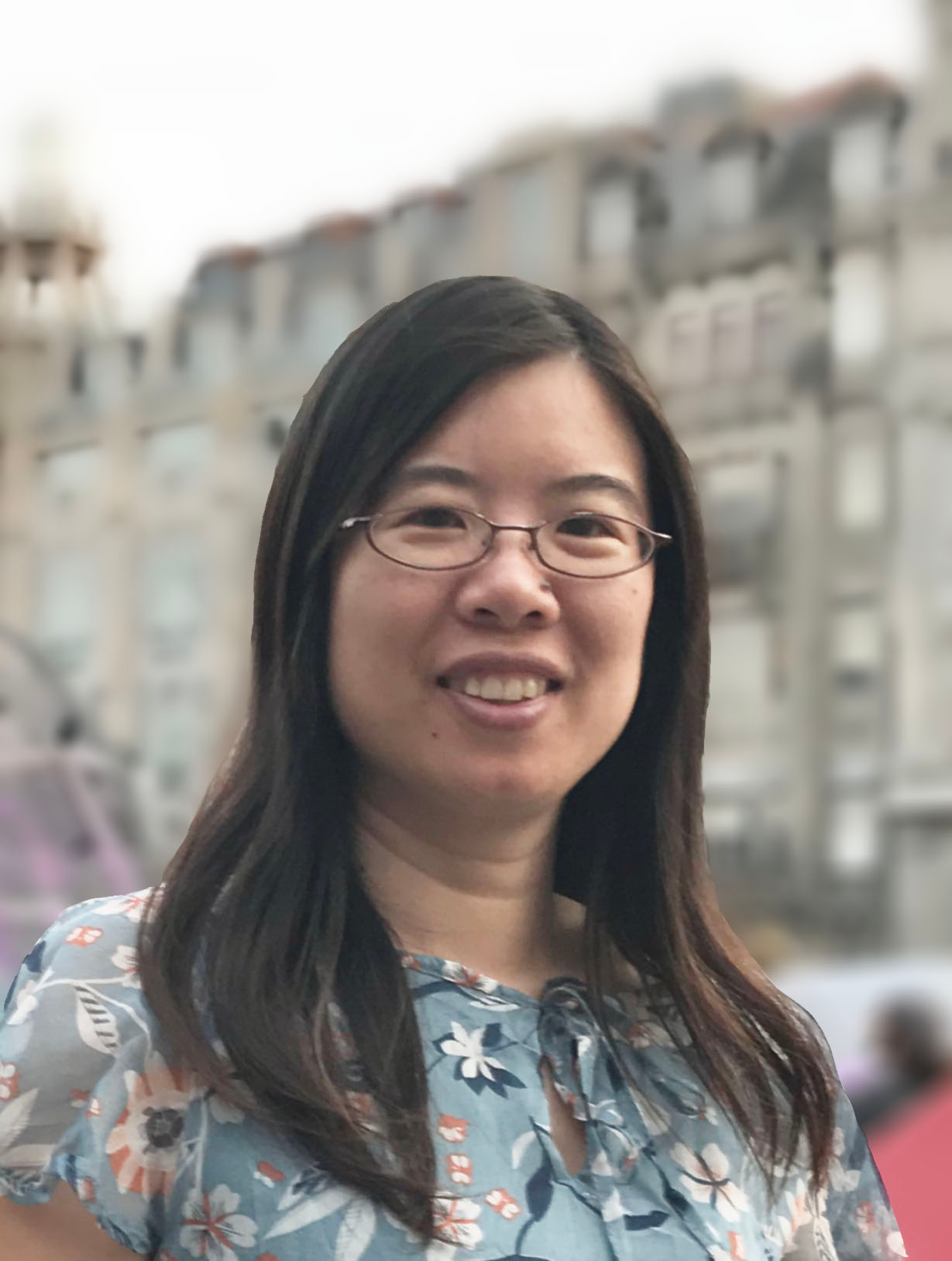Dr Guifen Chen

Senior Lecturer in Neurobiology
Email: guifen.chen@qmul.ac.uk
Telephone: +44 (0) 20 7882 3205
Room Number: 3.13, Fogg Building
Website: https://scholar.google.com/citations?hl=en&user=lhe0t_4AAAAJ
Twitter: @GuifenChen
Profile
Dr Guifen Chen is a Senior Lecturer in the Department of Psychology at QMUL. Her PhD is in Neuroscience and her research career spans universities in Asia, North America and Europe, including the lab of Nobel Laureate Prof. John O'Keefe.
Dr Chen’s research group at QMUL focuses on the neuronal basis of spatial cognition and memory in mice, making use of state-of-the-art virtual reality techniques and in vivo electrophysiological recording (tetrode and Neuropixels probe recordings). The research is primarily funded by the Biotechnology and Biological Sciences Research Council (BBSRC).
ORCID iD: 0000-0002-5459-660X
Twitter: @GuifenChen
Undergraduate Teaching
Fundamentals of Neurobiology (SNU209)
Research
Research Interests:
The ability to navigate is an essential skill required by both humans and animals. Animals can use sensory cues across modalities, such as visual, auditory, olfactory, integrated with self-motion cues, to find their way home from a food searching journey. Neural activity in the hippocampus and adjacent cortical areas, has been shown to correlate with the physical location of an organism. However, it is not clear how an internal unified representation of space, which supports navigation, is generated by integrating sensory inputs across modalities.
Virtual reality offers a powerful tool for investigating spatial cognition, allowing environmental manipulations that are impossible in the real world. Two-dimensional immersive virtual reality allows a close approximation of spatial representation in the real world. Hence, my laboratory is studying the across-modal navigation in virtual environments, combining virtual reality techniques with in vivo electrophysiological recording (tetrode and Neuropixels probe recordings) and 2-photon imaging.
Watch a mouse running in a virtual square environment
Examples of research funding:
BBSRC
Royal Society
Publications
- Yang X, Caccuci F, Burgess N, Wills T, Chen G* (*corresponding) (2024). Visual boundary cues suffice to anchor place and grid cells in virtual reality. Current Biology doi.org/10.1016/j.cub.2024.04.026.
- Ji Z, Ratto R, Hayman R, Castegnaro A, King J, Keck T, Cacucci F, Chen G*, Neil Burgess N*. (*co-corresponding) (2024). Two-photon imaging of Mouse Hippocampus during Virtual Navigation of Open Arenas. Abstract for iNav Conference.
- Whittington JC, Muller TH, Mark S, Chen G, Barry C, Burgess N, Behrens TE. (2020). The Tolman-Eichenbaum Machine: Unifying space and relational memory through generalisation in the hippocampal formation. Cell. doi: 10.1016/j.cell.2020.10.024
- Chen G, Lu Y, King J, Cacucci F, Neil Burgess N. (2019) Differential influences of environment and self-motion on place and grid cell firing. Nature Communications. 10, 630.
- Chen G, Hayman R, Lu Y, King J, Keck T, Cacucci F, Burgess N (2018) 2-photon imaging of mouse hippocampus during virtual navigation of open arenas. SfN Abstr. 689.20/FFF11.
- Chen G (2018) Identifying posture cells in the brain. Science. 362(6414):520-521.
- Chen G, King JA, Lu Y, Cacucci F, Burgess N. (2018) Spatial cell firing during virtual navigation of open arenas by head-restrained mice. Elife. Jun 18;7.
- Li S, Xu J, Chen G, Lin L, Zhou D, Cai D. (2017) The characterization of hippocampal theta-driving neurons - a time-delayed mutual information approach. Scientific Reports. Jul 17;7(1):5637.
- Chen G *, Manson D, Cacucci F, Wills TJ. (2016) Absence of Visual Input Results in the Disruption of Grid Cell Firing in the Mouse. Current Biology. Sep 12;26(17):2335-42. (*co-corresponding)
- Zhang L, Ma X, Chen G, Barkai E, Lin L. (2016) Theta Rhythmic Clock-Like Activity of Single Units in the Mouse Hippocampus. J Neurosci. Apr 20;36(16):4415-20.
- Chen, G., King, J., Burgess, N., and O’Keefe, J. (2013) How vision and movement combine in the hippocampal place code. Proc Natl Acad Sci USA. 110 (1) 378-383.
- Zhang H, # Chen G, # (# equal contribution), Kuang H, Tsien JZ. (2013) Mapping and deciphering neural codes of NMDA receptor-dependent fear memory engrams in the hippocampus. PLoS One. 8(11):e79454.
- Tsien JZ, Li M, Osan R, Chen G, Lin L, Wang PL, Frey S, Frey J, Zhu D, Liu T, Zhao F, Kuang H. (2013) On initial Brain Activity Mapping of episodic and semantic memory code in the hippocampus. Neurobiol Learn Mem. 105:200-10.
- Zhang L, Chen G, Niu R, Wei W, Ma X, Xu J, Wang J, Wang Z, Lin L. (2012) Hippocampal theta-driving cells revealed by Granger causality. Hippocampus, 22(8):1781-93.
- Oşan, R., # Chen, G.,# ( # equal contribution), Feng, R., and Tsien, J.Z. (2011) Differential Consolidation and pattern reverberations within episodic cell assemblies in the mouse hippocampus. PLoS One, 6(2):e 16507.
- Chen, G., Wang, L.P., and Tsien, J.Z. (2009) Neural population-level memory traces in the mouse hippocampus. PLoS One, 4(12):e 8256.
- Lin, L., Chen, G., Kuang, H., Wang, D., and Tsien, J.Z. (2007) Neural encoding of the concept of nest in the mouse brain. Proc Natl Acad Sci USA, 104: p. 6066-71.
- Lin, L., Chen, G., Xie, K., Zaia, K.A., Zhang, S., and Tsien, J.Z., (2006) Large-scale neural ensemble recording in the brains of freely behaving mice. J Neurosci Methods, 155: 28-38.
- Jiang, C., Chen, G., Zeng, X., Ouyang, K., and Hu, Y. (2003) Generation of a bioactive neuropeptide in a cell-free system. Analytical Biochemistry, 316: 34-40.
- Chen, G., Kuang, H., Cui, L., Zhang, L., and Lin, L., (2003) Complexity analysis on spike trains of the single auditory nerve. ACTA BIOPHYSICA SINICA, 19: 297-302.
- Chen, G., and Lin, L. (2003) Progress in the research of LTP in hippocampus. Chinese J. Nature, 25: p. 156-61.
Supervision
Lab members:
Join us:
Please get in touch for various opportunities below:
For post-doctoral positions
For PhD positions
CSC-funded PhD opportunities
For 2025: contact Guifen Chen directly for details. We are looking for candidates from the fields of neurosciences, life sciences, math, physics, engineering and computer sciences.
Here are the links for the applications:
Experience-dependent consolidation of spatial coding
Role of Adult-born Oligodendrocytes in Spatial Coding
We currently have CSC students from both engineering and life sciences backgrounds, who will support your applications to CSC.